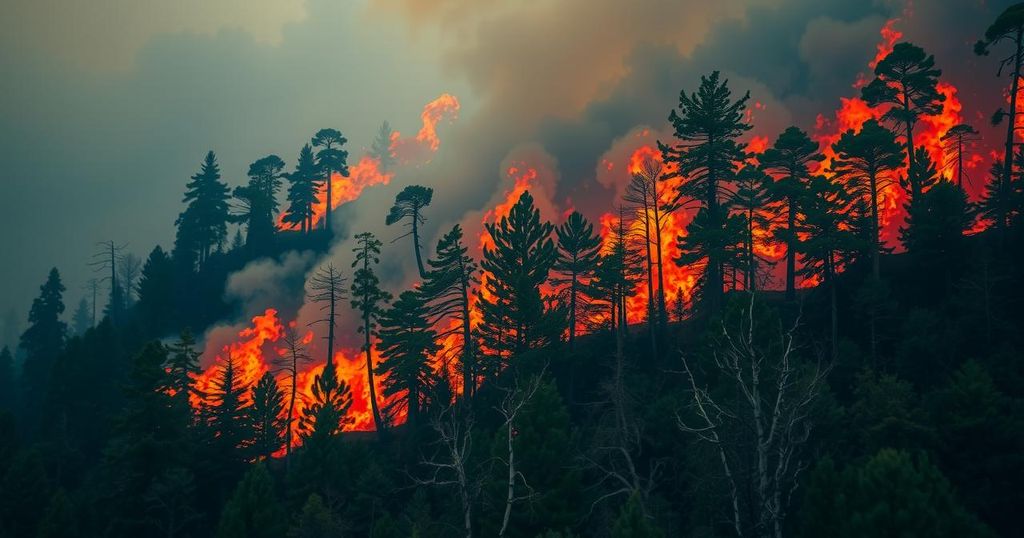Climate Change Intensifies Forest Fires and Threatens Public Health

Recent studies indicate that climate change is significantly increasing the frequency and severity of forest fires, which in turn is linked to rising health risks from air pollution. Areas such as Australia, South America, and western North America are particularly affected. Mortality rates from air pollution due to fires have nearly doubled since the 1960s, with recent estimates attributing thousands of deaths directly to climate change-related fire activities. This underscores an urgent need for intervention and policy adjustments to safeguard public health and the environment.
The escalating effects of climate change are amplifying the incidence and intensity of forest fires, thereby posing significant threats not only to the environment but also to human health. A recent study featured in the journal “Nature Climate Change,” which involved researchers from the Federal Institute of Technology (ETH Zurich), has illustrated a troubling trend: from 2003 to 2019, there was a marked increase of nearly 16% in forest areas affected by fires due to the impacts of climate change. Regions particularly afflicted include Australia, South America, western North America, and Siberia. Despite an overall reduction of 19% in global burned area during this period, primarily attributable to the transformation of forest land for agricultural purposes, the study reveals that where forest fires do occur, climate change catalyzes a significant increase in the severity of these events. Co-author Chantelle Burton from the UK Met Office remarked, “Our study shows that once fires occur, the impact of climate change becomes increasingly significant with drier and warmer weather conditions.” In a parallel study, led by Chae Yeon Park of the Japanese National Institute of Industrial Science and Technology, the detrimental effects of forest fire smoke on public health were examined. The findings indicate a sharp rise in deaths attributable to air pollution from fires—escalating from approximately 46,400 annually in the 1960s to around 98,750 by the 2010s. Crucially, the research attributed over 12,500 of these deaths in the 2010s specifically to climate change-induced fire pollution. Park asserted, “Our research makes it clear that climate change increasingly poses a threat to public health, as smoke is also affecting densely populated areas more frequently.” It is worth noting that certain regions, such as South Asia, have experienced fewer mortalities due to increased humidity linked to climate change, showcasing a complex interplay of environmental factors. The studies conducted are epidemiological in nature, emphasizing statistical correlations rather than direct causations, thereby providing estimates that may vary in actual clinical incidents.
Climate change is a pressing global issue that has profound effects on natural ecosystems and human populations. One notable consequence is the increased frequency and intensity of forest fires, exacerbated by rising temperatures and prolonged droughts. As forests become more vulnerable, the resultant air pollution poses significant health risks, leading to increased mortality rates. Scientific studies have sought to quantify these effects, revealing stark correlations between climate-induced factors and rising health concerns. Understanding the precise relationship between environmental changes and health outcomes is crucial for developing effective interventions and policies.
The research highlights a clear and alarming trend: climate change is not only fueling the occurrence of forest fires but is also significantly impacting human health through associated air pollution. As illustrated by the studies, regions most susceptible to these fires are seeing a surge in health complications and fatalities linked to climate change. It is imperative for policymakers and the global community to recognize these interlinked challenges and respond proactively to mitigate the effects of climate change on both ecosystems and public health.
Original Source: www.swissinfo.ch






